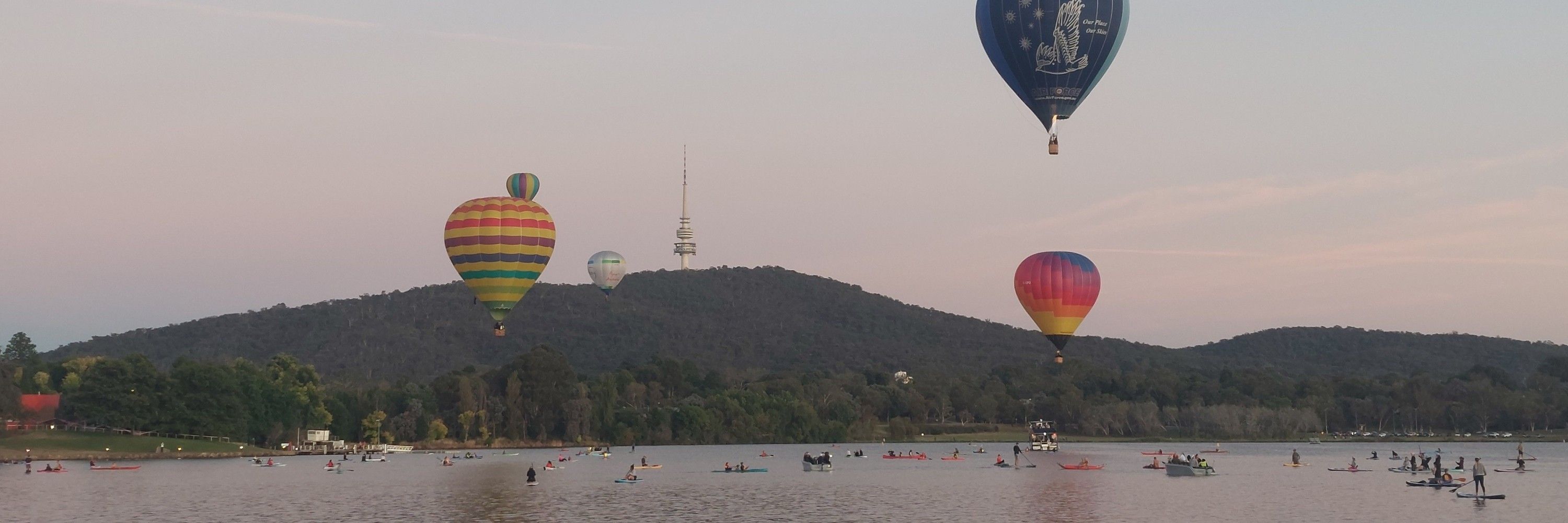
Sam Passmore
@sampassmore.bsky.social
Research Fellow with the Evolution of Cultural Diversity Initiative @ ANU
www.sampassmore.com
www.kinbank.net
Kinship | Language | Methods | Diversity
Short answer - it's complicated 🤣
Longer answer - the intersection of genealogical, cognitive, linguistic, and cultural variation alongside individual differences in family make-up and personal relationships makes it complicated 🤣🤣
Longer answer - the intersection of genealogical, cognitive, linguistic, and cultural variation alongside individual differences in family make-up and personal relationships makes it complicated 🤣🤣
October 29, 2025 at 10:19 PM
Short answer - it's complicated 🤣
Longer answer - the intersection of genealogical, cognitive, linguistic, and cultural variation alongside individual differences in family make-up and personal relationships makes it complicated 🤣🤣
Longer answer - the intersection of genealogical, cognitive, linguistic, and cultural variation alongside individual differences in family make-up and personal relationships makes it complicated 🤣🤣
Lucy sings this to our daughter all the time! Is it online or in person?
August 4, 2025 at 1:16 AM
Lucy sings this to our daughter all the time! Is it online or in person?
Thanks to my co-authors for doing the hard work of collecting, building, and cleaning the corpus. More to come on the corpus as a whole.
Thanks to all the speakers of Bislama and Tok Pisin
who contributed to this corpus, as well as the community members who facilitated its construction.
Thanks to all the speakers of Bislama and Tok Pisin
who contributed to this corpus, as well as the community members who facilitated its construction.
July 27, 2025 at 11:15 PM
Thanks to my co-authors for doing the hard work of collecting, building, and cleaning the corpus. More to come on the corpus as a whole.
Thanks to all the speakers of Bislama and Tok Pisin
who contributed to this corpus, as well as the community members who facilitated its construction.
Thanks to all the speakers of Bislama and Tok Pisin
who contributed to this corpus, as well as the community members who facilitated its construction.
I will be presenting these results at the 63rd Conference for the Association for Computational Linguistics in Vienna tomorrow in the 10.30 am - midday slot
Unfortunately for me, it will be a remote presentation, but I am envious of all the attendees! 🇦🇹
Unfortunately for me, it will be a remote presentation, but I am envious of all the attendees! 🇦🇹
July 27, 2025 at 11:15 PM
I will be presenting these results at the 63rd Conference for the Association for Computational Linguistics in Vienna tomorrow in the 10.30 am - midday slot
Unfortunately for me, it will be a remote presentation, but I am envious of all the attendees! 🇦🇹
Unfortunately for me, it will be a remote presentation, but I am envious of all the attendees! 🇦🇹
Thanks to my co-authors Birgit Hellwig, Rowena Garcia, and Evan Kidd.
Find the paper here: direct.mit.edu/opmi/article...
And supplementary material here:
doi.org/10.5281/zenodo.14498105
Find the paper here: direct.mit.edu/opmi/article...
And supplementary material here:
doi.org/10.5281/zenodo.14498105
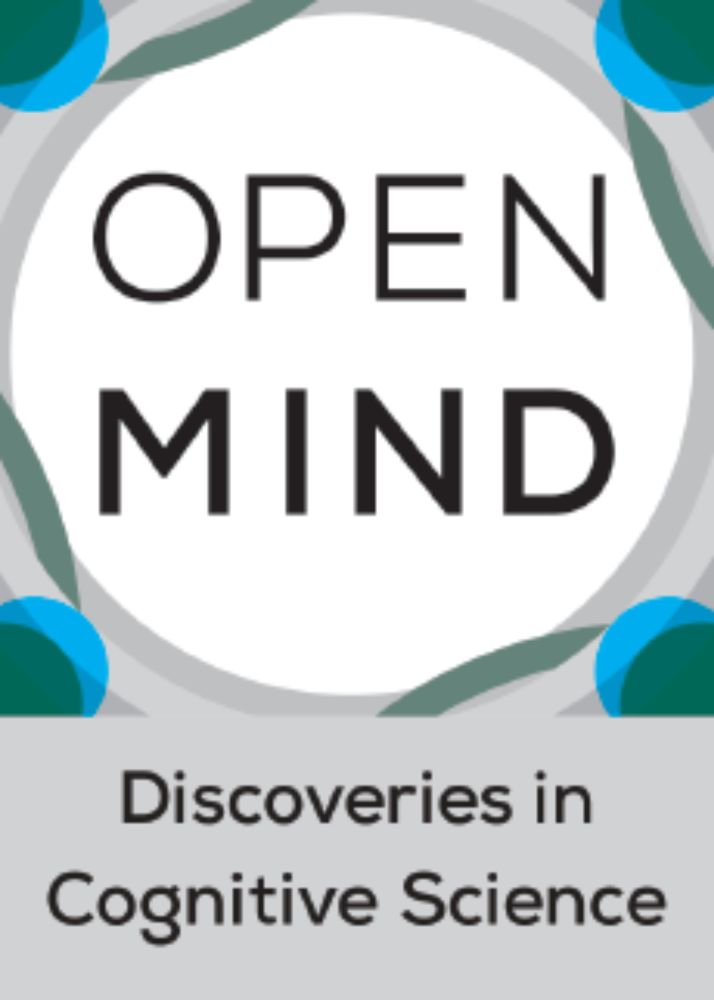
The Scientific and Cultural Cost of Convenience Sampling in the Face of Rising Language Endangerment: Highlighting the Role of Language Acquisition
Abstract. We live in an unprecedented era of language endangerment and loss. In the midst of this crisis, it is becoming more and more evident that the psychological and cognitive sciences know very l...
direct.mit.edu
April 10, 2025 at 9:29 AM
Thanks to my co-authors Birgit Hellwig, Rowena Garcia, and Evan Kidd.
Find the paper here: direct.mit.edu/opmi/article...
And supplementary material here:
doi.org/10.5281/zenodo.14498105
Find the paper here: direct.mit.edu/opmi/article...
And supplementary material here:
doi.org/10.5281/zenodo.14498105
The scientific loss of languages is overshadowed by the loss of cultural knowledge. Unlike biodiversity, preserving past conditions isn’t viable or desirable. The best way to address this challenge is through coordination between governments, academia, and, most crucially, engaged communities.
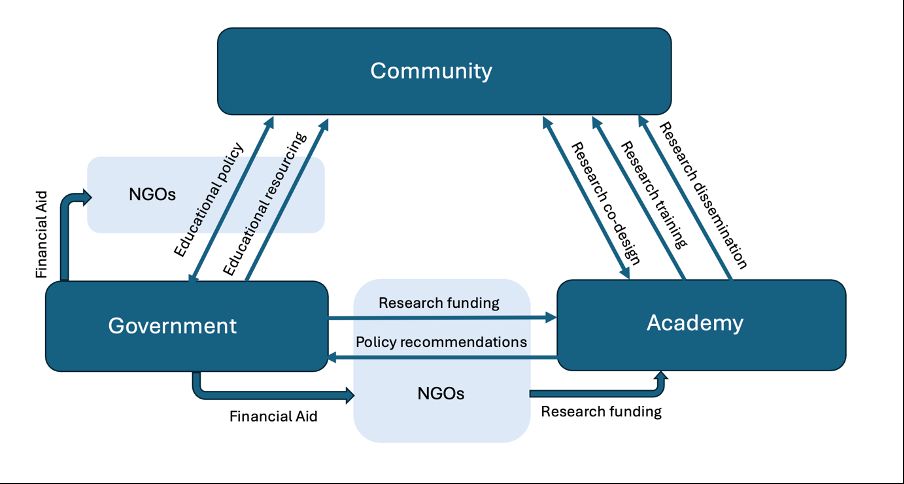
April 10, 2025 at 9:29 AM
The scientific loss of languages is overshadowed by the loss of cultural knowledge. Unlike biodiversity, preserving past conditions isn’t viable or desirable. The best way to address this challenge is through coordination between governments, academia, and, most crucially, engaged communities.
Despite growing concern over diversity and more research on child language acquisition, the number of unstudied languages remains steady. Just two new languages are studied each year, while many more stop being passed to children—soon, more will be lost than studied.
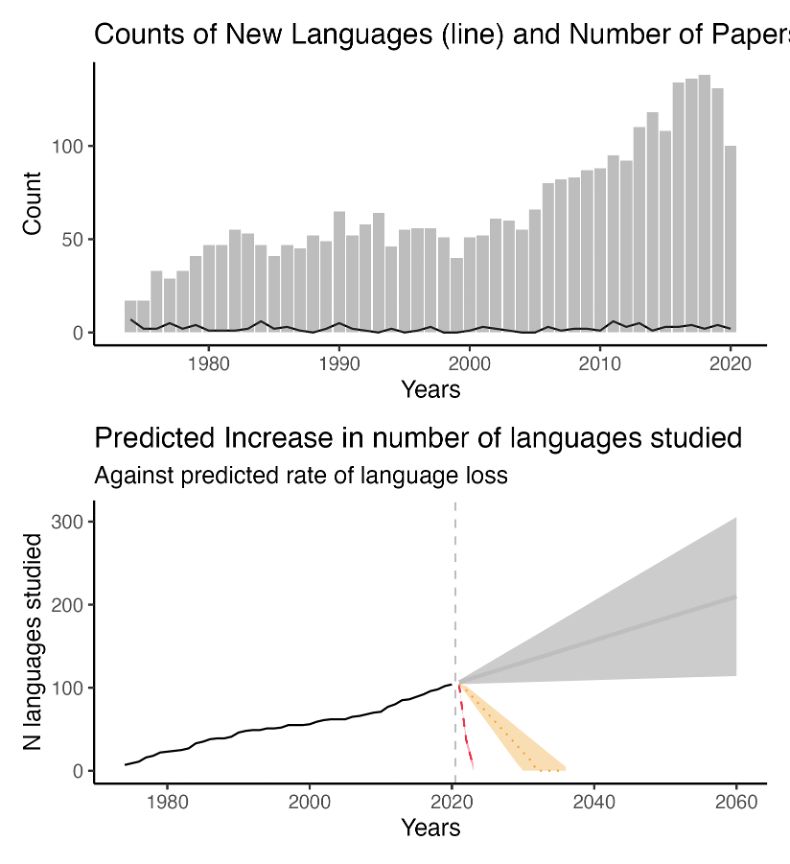
April 10, 2025 at 9:29 AM
Despite growing concern over diversity and more research on child language acquisition, the number of unstudied languages remains steady. Just two new languages are studied each year, while many more stop being passed to children—soon, more will be lost than studied.
Not only are child language studies focused on institutionally similar languages and capture only a narrow range of phonetic and grammatical diversity. About 10% of this diversity can’t be studied in child learners, as those languages are no longer being acquired by children today.
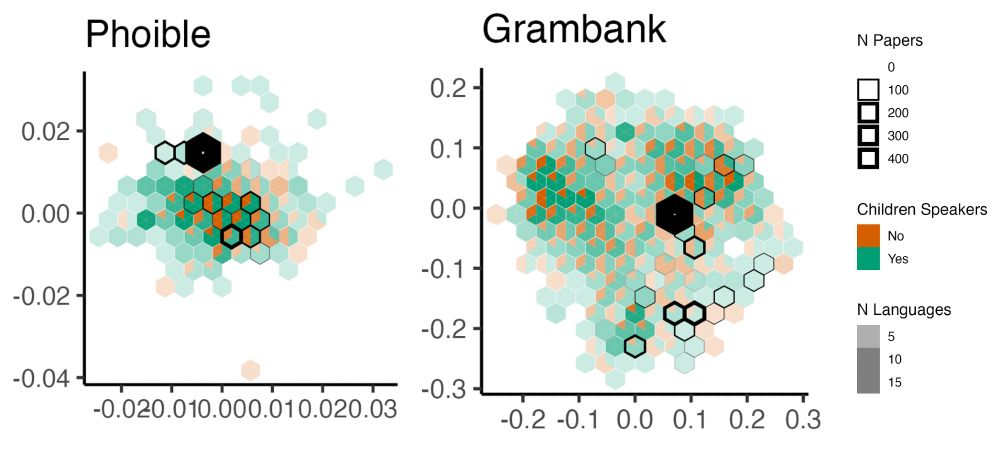
April 10, 2025 at 9:29 AM
Not only are child language studies focused on institutionally similar languages and capture only a narrow range of phonetic and grammatical diversity. About 10% of this diversity can’t be studied in child learners, as those languages are no longer being acquired by children today.
87% of unstudied languages are written, vigorous, or threatened. Children learning these languages experience informal transmission of language. 48% of studied languages are National languages, entrenched throughout the community. Children are unlikely to learn these languages the same way.
April 10, 2025 at 9:29 AM
87% of unstudied languages are written, vigorous, or threatened. Children learning these languages experience informal transmission of language. 48% of studied languages are National languages, entrenched throughout the community. Children are unlikely to learn these languages the same way.
Not exactly what your after but I think this is great discussion of what phylogenies do / don't tell us in CE.
Bromham L (2023) Meaning and purpose: Using phylogenies to investigate human history and cultural evolution. Biological Theory, 18(4), 284-302. doi.org/10.1007/s137...
Bromham L (2023) Meaning and purpose: Using phylogenies to investigate human history and cultural evolution. Biological Theory, 18(4), 284-302. doi.org/10.1007/s137...
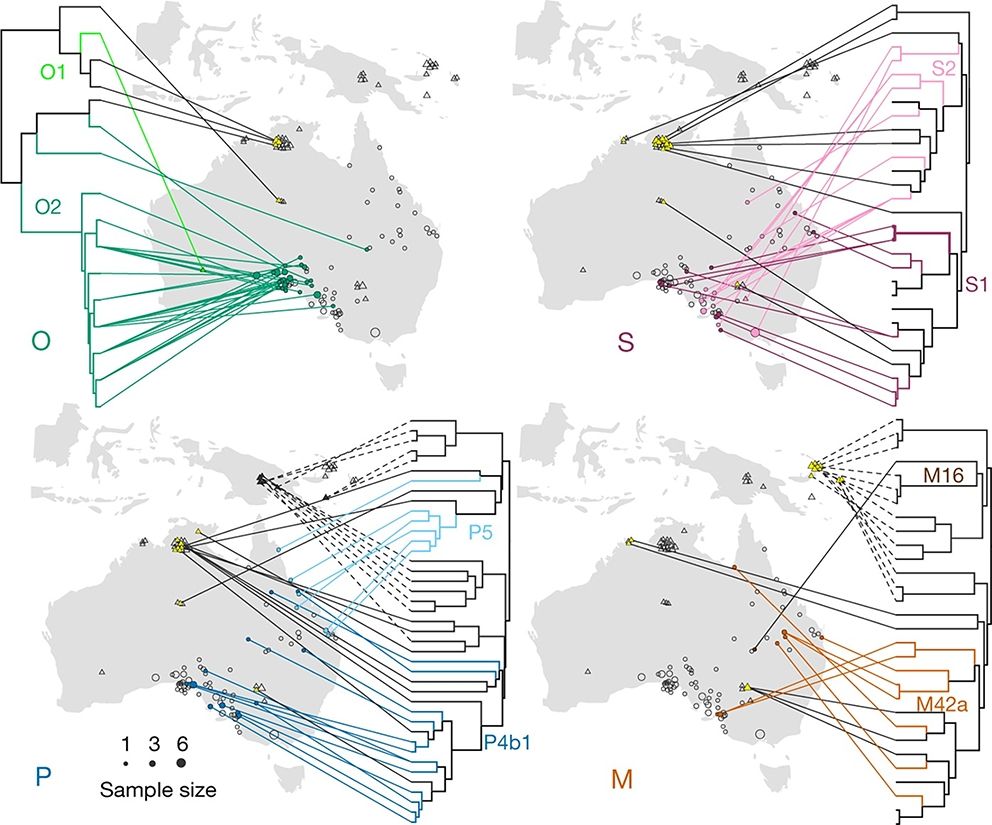
Meaning and Purpose: Using Phylogenies to Investigate Human History and Cultural Evolution - Biological Theory
Phylogenies are increasingly being used to investigate human history, diversification and cultural evolution. While using phylogenies in this way is not new, new modes of analysis are being applied to...
doi.org
March 30, 2025 at 10:30 PM
Not exactly what your after but I think this is great discussion of what phylogenies do / don't tell us in CE.
Bromham L (2023) Meaning and purpose: Using phylogenies to investigate human history and cultural evolution. Biological Theory, 18(4), 284-302. doi.org/10.1007/s137...
Bromham L (2023) Meaning and purpose: Using phylogenies to investigate human history and cultural evolution. Biological Theory, 18(4), 284-302. doi.org/10.1007/s137...

